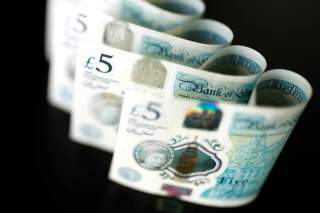Going 'Green': Could For the Planet, Bad for the Economy?
Here's what we know.
You’d be forgiven for thinking that businesses are racing ahead in the green transition. After all, big corporations like Sainsbury’s and Microsoft have made public announcements about going carbon neutral, or even carbon negative in the near future.
But these commitments are more difficult for small-to-medium enterprises (SMEs) to implement. Comprising fewer than 250 employees, they make up 99.9% of all businesses in the UK. Fully 96% have nine or fewer employees. They have fewer resources to carry out new policies and so are often left behind. SMEs might struggle to afford the upfront cost of installing renewable energy technologies like solar panels, and they might lack the time or personnel to find ways to reduce their energy use and emissions. This leaves them paying unnecessarily high energy bills or contributing more than their share of CO₂ emissions. This is not a fault of the policies themselves, but it does show the government’s lack of consideration of the challenges that small businesses face in trying to make the necessary changes.
I study low carbon technology and help SMEs in Liverpool and Lancashire to implement it. These companies are hit by levies and tariffs that are meant to incentivise more sustainable practices, but many lack the time and resources to implement them. As a result, they’re penalised, which further limits their capacity to catch up.
Heating
Over one-third of the UK’s greenhouse gas emissions come from heating buildings. Speedily deploying renewable heating – using technology like electric heat pumps – is essential for meeting the 2030 target of reducing emissions by 57% from 1990s levels. Why then do Energy Performance Certificate ratings continue to discourage customers from installing heat pumps?
These ratings calculate how energy-efficient a building is to heat. Every home that is rented, sold or assessed is required to produce a certificate. Data about the building’s construction, such as the wall materials and levels of insulation, is fed into an algorithm that is supposed to help the government measure the progress of its energy-efficiency policies. But the underlying assumption within this algorithm is that electricity is more expensive than gas, and electric heating will greatly increase electricity use. There is some truth in that, but emissions from electricity generation will decrease as the electrical grid is decarbonised. Gas powered appliances meanwhile will always result in the same emissions.
Recycling
A plastic bag charge may seem like a simple method for reducing use. After all, people would prefer not to pay for something that they can bring from home. Still, there are worrying side effects to this policy.
For instance, there are relatively higher emissions from the manufacture of single-use paper bags and an increase in heavier bags making their way to landfill because people are no longer reusing the flimsier free shopping bags for their bins. Instead, they’re buying rolls of heavy bin bags. Heavier loads on vans transporting rubbish means higher emissions.
Businesses in the UK that produce packaging will also be hit with a levy after April 2022 if their products are not at least 30% recycled material. But what about businesses with a circular system which means they reuse their packaging and skip the heavily polluting recycling stage altogether? As it is, these businesses will face the levy too.
Communication
A small business looking to be more sustainable would do well to ban paper communication. But there’s no guarantee that relying on emails is a big improvement. Most people don’t associate texts, emails and unnecessary attachments with a carbon cost, but our internet use also has emissions.
The Carbon Literacy project estimates that every spam email emits approximately 0.3g CO₂e (carbon dioxide equivalent). An email with “long and tiresome attachments” emits approximately 50g CO₂e. The average office worker produces 1.652kg CO2e per day in emails alone.
Transit
Installing energy-saving lightbulbs and energy efficient boilers will help a business reduce its emissions. But often the impact of energy use is eclipsed by something few people even count – the emissions from employees commuting to work every day.
Setting up a work-from-home policy or arranging virtual meetings where possible would be a cheap and effective way for an SME to address their emissions quickly. For a big company like Sainsbury’s, pressuring local councils to make public transport more affordable and accessible would go even further to bring down emissions for local businesses and the wider community.
To help businesses go zero carbon, or even carbon negative, policies must be adaptable and developed with community input. None of the policies I mention are innately bad – many of them quite work well in some places. But more important than any single policy is an overarching strategy to decarbonise society and the economy. Without monitoring the effects of each decision or making an effort to consider unintended consequences, governments can do more harm than good.

![]()
Ariel Edesess, Postdoctoral Researcher in Low Carbon Technology, Liverpool John Moores University
This article is republished from The Conversation under a Creative Commons license. Read the original article.
Image: Reuters

